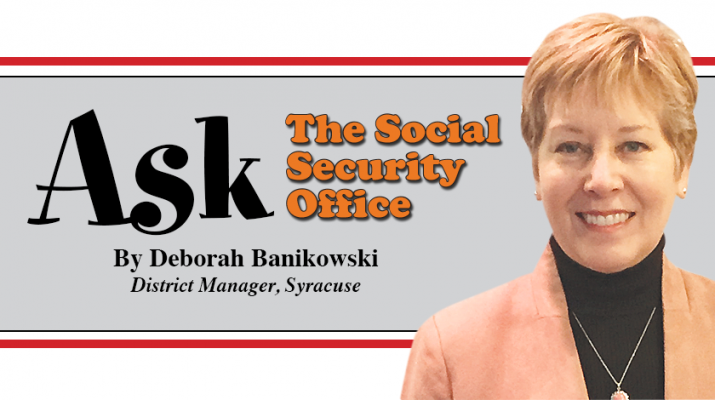By Deborah Banikowski
District Manager, Syracuse
Social Security is required by law to review, from time to time, the current medical condition of all people receiving disability benefits to make sure they continue to have a qualifying disability. Generally, if a person’s health hasn’t improved, or if their disability still keeps them from working, they will continue to receive their benefits.
These continuing disability reviews help us ensure that only eligible people receive disability benefits. It supports the integrity of the Social Security system while delivering fair services to wounded warriors, chronically ill children and adults and other people with disabilities.
To help us make our decision, Social Security first gathers new information about an individual’s medical condition. We’ll ask their doctors, hospitals and other medical sources for their medical records. We’ll ask them how their medical condition limits their activities, what their medical tests show and what medical treatments they’ve been given. If we need more information, we’ll ask them to get a special examination or test, for which we’ll pay.
If we decide their disability benefits will stop, and they disagree, they can appeal our decision. That means they can ask us to look at their case again. When they get a letter telling them about our decision, the letter will tell them how to appeal the decision.
You can read more about how we decide if you still have a qualifying disability at www.socialsecurity.gov/pubs/EN-05-10053.pdf.
People can check the status of their disability application with a personal my Social Security account at www.socialsecurity.gov/myaccount. This secure account gives people access to many tools that can save them time.
Find out how Social Security is securing today and tomorrow at www.socialsecurity.gov.
Q&A
Q: I own a small business. How can I verify employees’ Social Security numbers?
A: Employers can use our Social Security Number Verification Service to verify the names and Social Security numbers of current and former employees for wage reporting purposes. For more information, go to www.socialsecurity.gov/employer/ssnv.htm.
Q: What is the earliest age I can begin receiving Social Security retirement benefits?
A: The earliest age you can begin receiving Social Security retirement benefits is age 62. If you decide to receive benefits before your full retirement age, which for most people is age 66 or 67, you will receive a reduced benefit. Keep in mind you will not be able to receive Medicare coverage until age 65, even if you decide to retire at an earlier age. For more information, go to www.socialsecurity.gov/retire.

